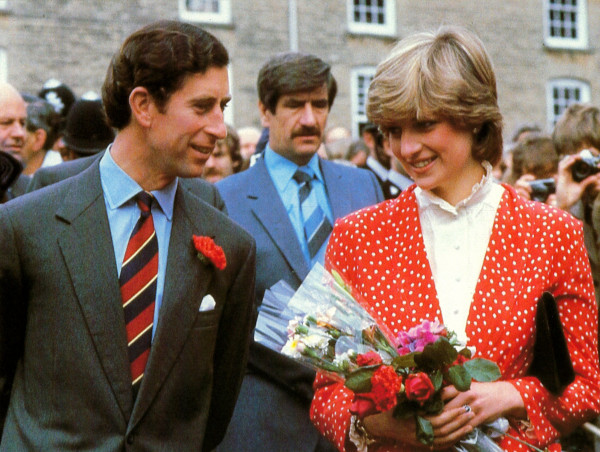King Charles’ Deep Grief Revealed: How He Reacted to Princess Diana’s Death 27 Years Later

On the 27th anniversary of Princess Diana’s death, new insights into King Charles III’s emotional response underscore the profound impact her passing had on him. The tragic accident, which occurred on August 31, 1997, in a Paris underpass, claimed the lives of Diana, her companion Dodi Fayed, and their chauffeur, Henri Paul. As the world remembers the "People’s Princess," the reverberations of her death continue to be felt deeply within the royal family.
Christopher Andersen, author of The Day Diana Died, has shed new light on King Charles' reaction to the devastating news. Andersen reveals that upon learning of Diana’s death, Charles was "shattered" and responded with intense grief. "When he was first told over the phone that Diana had died, Charles, according to an eyewitness, 'howled like a wounded animal,'" Andersen told Fox News Digital. This raw emotional response highlights the profound effect Diana’s death had on Charles, despite their strained relationship at the time.
Charles’s distress did not end with the initial news. Andersen recounts that after receiving the heartbreaking information, Charles rushed from Balmoral Castle in Scotland to Paris to arrange for Diana’s return to England. His emotional state was so severe that he nearly passed out upon viewing her body. Andersen notes, "A nurse who was standing in the room told me he reeled back and looked as if he had been ‘struck by an unseen force.’” This reaction, given the tumultuous history of their marriage, was notably surprising to those who observed it.
The release of a personal letter from Charles, auctioned for $2,000, further illuminates his state of mind. In the letter, Charles expressed feelings of "unbearable emptiness" four months after Diana’s death, revealing the depth of his ongoing grief. This letter, reported by the UK's DailyMail, adds a personal dimension to the public’s understanding of Charles' mourning.
In the months preceding Diana's death, she and Charles had managed to reconcile for the sake of their children, Prince William and Prince Harry. Andersen points out that the former couple had set aside their differences, becoming "very best friends" in Diana’s final months. "In the months before Diana’s death, she and Charles decided to put their bitterness behind them," Andersen explained. Despite their separation, Diana’s enduring affection for Charles was evident, with a close confidant noting that "her love for Charles never really died."
The ceremonial funeral for Diana, attended by 2,000 people and broadcast to over 2 billion viewers worldwide, was a testament to her global impact. Andersen describes how Charles had to navigate significant challenges to ensure that Diana was given the tribute she deserved, battling against the monarchy’s traditional constraints to honor her appropriately.
As Charles grappled with his grief, Camilla Parker Bowles, who would later become his second wife, faced significant backlash. Andersen reports that Camilla received death threats and had to go into hiding during this period. The heightened tensions around Camilla’s role added to the complexity of Charles' emotional and public life during this time.
The shadow of Diana’s legacy has continued to influence Charles' life and decisions. Andersen notes that Charles spent years dealing with the persistent comparisons between Camilla and Diana. "Charles spent years shadowboxing with the ghost of Diana," Andersen said, suggesting that the memory of Diana remained a poignant part of Charles' life, impacting his personal and public decisions.
On this somber anniversary, Kensington Palace, Diana’s former residence, has been adorned with tributes to the late princess. The palace has been covered with portraits and banners celebrating Diana’s life and work. Visitors have come to lay flowers and view photographs, reflecting the continued affection and respect for Diana. One prominent banner reads, "Her work continues through her loving sons Prince William and Prince Harry," highlighting the ongoing legacy of Diana’s contributions.
However, the royal family’s social media accounts remained conspicuously silent on the anniversary, a stark contrast to the outpouring of public and media tributes. This absence of official acknowledgment underscores the complex dynamics within the royal family as they navigate the legacy of Princess Diana.
As King Charles III battles a serious illness, the reflections on Diana’s impact remain a significant aspect of his life. Andersen suggests that the memories of Diana, both positive and negative, continue to linger in the background, reflecting the enduring and multifaceted influence of the "People’s Princess" on those who knew her and the world she left behind.













